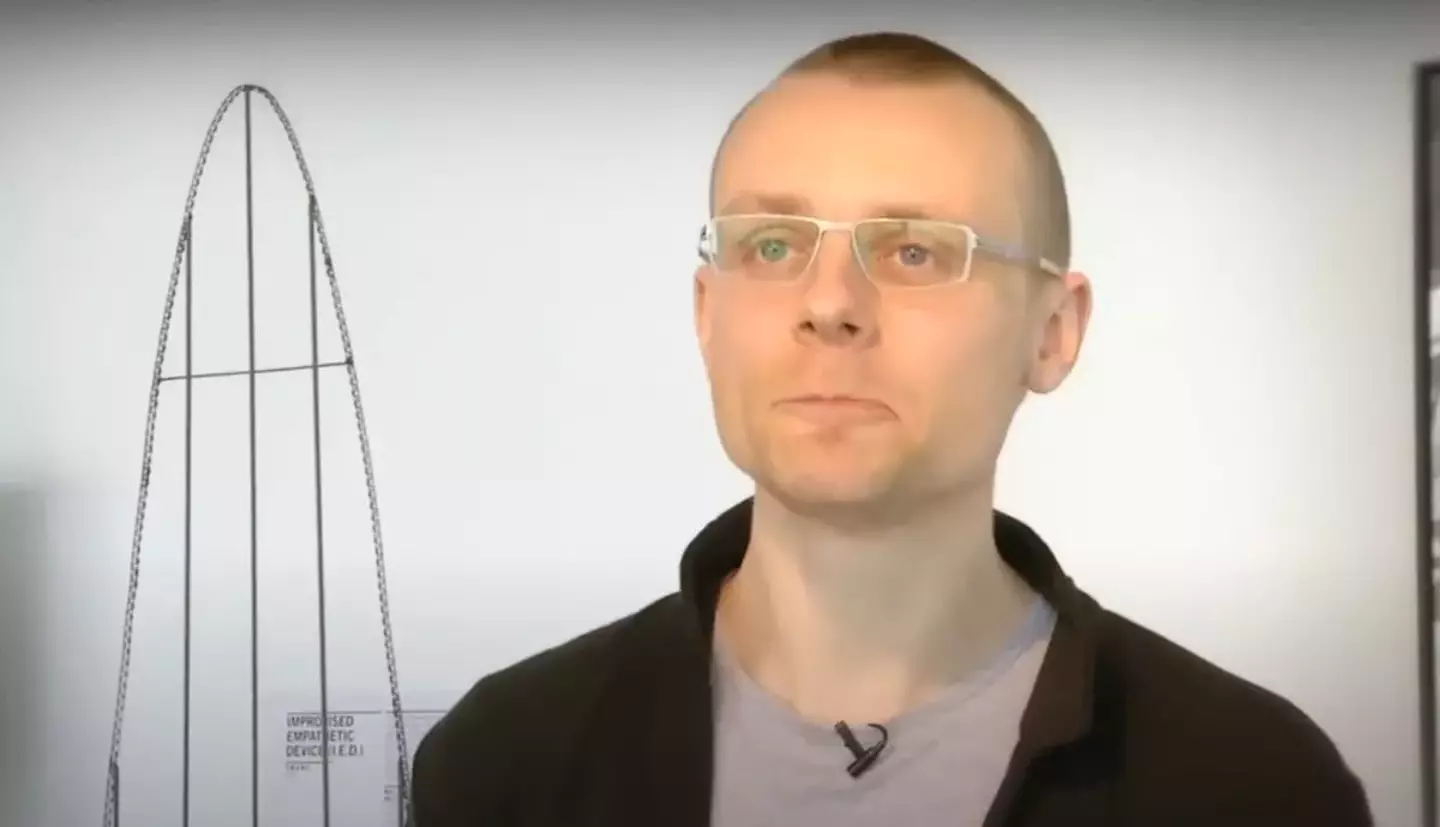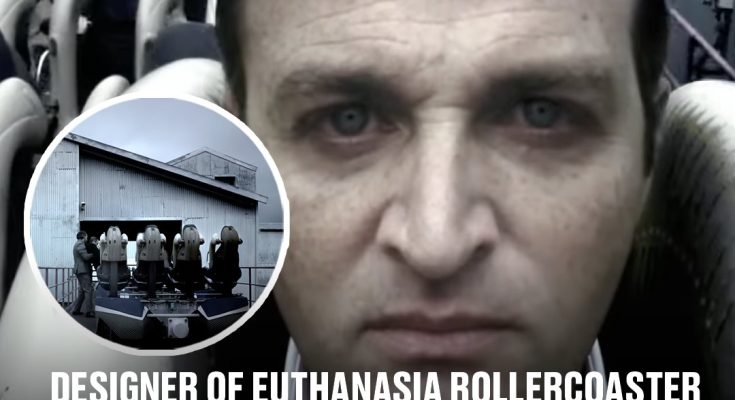Julijonas Urbonas, from Lithuania, led the prize-winning ‘euthanasia rollercoaster’ project
The terrifying euthanasia rollercoaster that is designed to kill everyone who goes on it was once thought up by Julijonas Urbonas in 2010.
Dubbed the ‘hypothetic death machine’ by the Lithuanian engineer, it’s a project that was awarded the Public Prize of New Technological Art of Update 2013.
Coming in with a 1,600ft stretch, the rollercoaster that you ‘only ride once’ goes up to 223mph – around the top speed of a Bugatti.
Euthanasia basically took on a life of its own when it was unveiled, as Urbonas explained: “Riding the coaster’s track, the rider is subjected to a series of intensive motion elements that induce various unique experiences: from euphoria to thrill, and from tunnel vision to loss of consciousness, and, eventually, death.
“From there, you would begin experiencing a blackout and ultimately you would eventually lose consciousness and die.”
Hypothetically, the way it would work is that each passenger experiences a series of loops, which get smaller and smaller as the rollercoaster progresses, eventually leading to death.
It would take around 60 seconds for the rollercoaster to go through all seven inversions, as each inversion gets tighter.

Julijonas Urbonas, from Lithuania, led the prize-winning ‘euthanasia rollercoaster’ project (YouTube/Science Gallery Dublin)
The design includes space for 24 people, and each person has the option of pressing one of two buttons, ‘stop’ and go’.
However, if just one out of the two dozen decides against it, the ride would simply come to an end.
All 24 need to press ‘go’ and once they do, everyone will get to say their final words before they die.
Though what ultimately kills the passengers is not the speed, but the 10Gs of force during the entire 60-second experience.
For context, Formula 1 cars reach a G-force of above 6Gs when taking a bend, while the Apollo 16 comes in at 7.19Gs.
In a horrifying simulation video shared by @ridesnslides, they explain: “The train would plummet over the side of the hill, hurtling down at a speed of 360kmh, close to its terminal velocity.

The simulation is truly horrifying (TikTok/@ridesnslides)
“After the 500-metre initial drop, the track flattens out and begins the first of seven inversions in a row. And this is the deadly part.
“It would take 60 seconds for the train to go through all seven of these inversions, and each inversion gets a gradually smaller and smaller diameter in order to maintain 10Gs of force to all the passengers during the entire 60-second experience.
“You would gradually begin experiencing worsening cases of cerebral hypoxia, meaning your blood would rush to the lower parts of your body, and so your brain wouldn’t be getting enough oxygen to survive.
“The first thing that you would notice is your vision greying out, which would then gradually turn to tunnel vision.”



